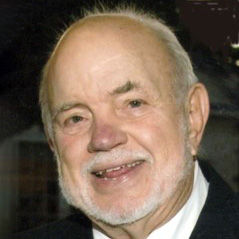While delegates to the GOP convention were congratulating themselves for their candidate’s tough stand against terrorism, the Bush administration was creating an international incident—little publicized in the United States—by harboring a notorious group of international terrorists on U.S. soil.
Earlier this month, three anti-Castro Cuban exiles flew to Miami from Panama after serving four years in prison for “endangering public safety.” They were arrested in 2000 for plotting to assassinate Fidel Castro by planting explosives at a meeting the Cuban dictator planned to hold with university students in Panama.
The average convicted terrorist does not just waltz past U.S. immigration authorities in this post-9/11 age of orange alerts, “no fly” lists and shoe searches. Senator Edward Kennedy reportedly gets stopped by airport authorities every time he tries to make a flight, allegedly because the “Kennedy” name appears on a database of suspects.
Only political influence exerted at the highest level could account for terrorists reentering U.S. borders without impediment, despite rap sheets extending back as long as forty years:
- Pedro Rémon, sentenced to seven years for the bomb plot in Panama, pleaded guilty in 1986 to bombing Cuba’s mission to the United Nations and later conspiring to murder its ambassador to the UN. A New York detective also fingered Rémon for the machine-gun murders of two political opponents.
- Gaspar Jiménez, sentenced to eight years for the Panama bomb plot and falsifying documents, had previously served time in Mexico for the attempted kidnapping and murder of Cuban diplomats there. He was also indicted in Florida for blowing the legs off a liberal Miami radio talk show host in 1976. (The indictment was eventually dropped for insufficient evidence, even though the main witness passed several lie-detector tests.)
- Guillermo Novo, sentenced to 7 years for the Panama terror plot, was arrested in 1964 for firing a bazooka at the United Nations, where Che Guevara was speaking. In 1978, he was convicted of participating in one of the worst acts of terrorism ever committed on U.S. soil, the car bombing in Washington, D.C. of former Chilean Foreign Minister Orlando Letelier. (The conviction was later overturned on a technicality, though Novo was convicted of perjury.)
- A fourth Panama conspirator, Louis Posada Carriles, left Panama for Honduras. He is still wanted in Venezuela on charges of bombing a Cuban airliner in 1976, killing all 73 passengers. In 1998, in an interview with the New York Times from a hideout in Central America, Posada admitted taking part in numerous acts of terrorism, including a wave of Havana hotel bombings in 1997 that killed an Italian tourist. He said his violence was funded by prominent U.S.-based supporters in the Cuban exile community.
The release of these terrorists from Panama—ordered by its outgoing president—has caused a furor in Central America. Venezuela recalled its ambassador and Cuba severed diplomatic relations with Panama.
Honduras also protested. “I will . . . demand that the United States and Panama explain how Posada Carriles used a false U.S. passport,” declared Honduran President Ricardo Maduro. “How did that airplane leave Panama with Posada Carriles, reach Honduras, and wind up in the United States?”
“We know we’re dealing with important international influences,” the president added.
Those influences no doubt include the fact that Posada was trained by the CIA in the 1960s in sabotage techniques, remained on the CIA payroll into the 1970s, and in the mid-1980s (after escaping from a Venezuelan jail) assisted the Reagan administration’s covert supply operation on behalf of the Nicaraguan Contras.
Then there’s the undeniable fact that Cuban exile terrorists enjoy strong political support in the swing state of Florida, thanks to organized lobbying by such groups as the Cuban American National Foundation. That explains why President Bush, in 2001, rejected the advice of the FBI and freed from INS custody two convicted colleagues of Guillermo Novo in the Letelier assassination.
Conservatives have long (and rightly) derided the glib phrase, “one man’s terrorist is another man’s freedom fighter.” The incoming Panamanian president, Martin Torrijos, likewise stood on principle when he rejected his predecessor’s decision to pardon the terrorists, saying, “For me, there are not two classes of terrorism, one that is condemned and another that is pardoned. . . . It has to be fought no matter what its origins.”
Three years ago, after 9/11, President Bush appeared to draw the same line in the sand. Addressing members of the 101st Airborne Division, he declared, “If you harbor terrorists, you are a terrorist.”
Today, Americans should ask whether those tough words were only rhetoric, quickly forgotten when political convenience dictates.







